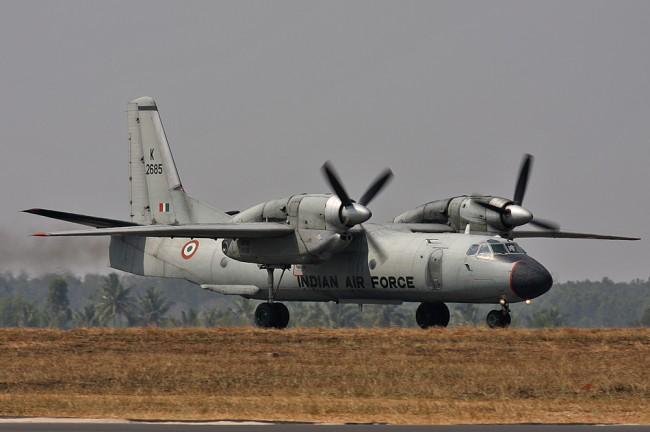
Having found itself bending under the burden of sanctions imposed on Russia after its aggression against Ukraine, Putin’s regime spiraled down into the China’s mold seeking to meet its every whim, which has also projected on the arms deliveries from Russia to India.
The rapid re-lift of additional Indian troops from Pakistani border to the edges of Burma stands as a kind of problem fully contingent on the Indian transport aviation contemporary capabilities.
In the event of it being incapacitated, the Indian government will have nothing to do but make way to the growing China-respired militant groups in the east of India. To pursue this goal and bring the Indian transport aviation to its knees, there is no need for Russia to follow the well-trodden terror-imbued path forged in Ukraine. Evidently, it would be enough to re-establish practices of British colonizers and lead New Delhi astray in the field of civil aviation industry development.
Undoubtedly, were the aforementioned come true, Moscow will see some berries from Beijing, for example in the form of credit for useless gas pipeline in Altay, which will remain idle, but furnish Putin’s regime with a splendid opportunity to honor a hallowed tradition of capitalizing on big constructions projects.
Apparently, Moscow’s ambitions make India face a hard choice as long as Russia happens to be incessant in its calls to fold current efforts aimed at meeting dire needs of Indian aviation and launch instead some pipe-dream projects, which are a long way to go, but the consequences of such transition leap to an eye today, especially if to fall back on a quite telling numbers.
To keep its aviation effective Indian aviation should modernize its obsolete fleet encompassing more than 200 aircrafts among which are more than 100 waning An-32 made by the Ukrainian enterprise „Antonov”. Furthermore, there are about 64 pieces of HS 748.100 „Avro” designed by „Hindustan Aeronautics” in concert with „British Aerospace”, 17 Russian-made IL-76MD, 10 new military transports C-17 „Globemaster III” received from „Lockheed Martin” in 2014 as well as some C-130-J.
However, the major potential of Indian military transport aviation is still closely linked to the Ukrainian-manufactured An-32 and their Ukrainian-Indian upgrade called An-32RE. Along with that, India is in the works for the tender to modernize the aforesaid „Avro” aircraft.
Indeed, before the outburst of hostilities in the Ukrainian state, Russia has never openly said anything against the modernization of Indian „Avro” and An-32. This is easily explained by the fact that Russian corporation „ILiu-Shin” has no tried-and-tested engines of new making, therefore it cannot offer India any project associated with swift modernization of IL-76MD.
In connection with the foregoing, Russia arrived with quite an unprecedented way out of such a state-of-affairs, particularly through manufacturing on the basis of IL-76MD a brand-new Russian aircraft MTA until 2025. However, for the time being this aircraft is neither on a sketch-board, nor in the must-have list among the importers.
Interestingly, the aforementioned aircraft’s engine PD-14 has undergone test-bench trials only in 2013, although Russia boldly states that it will be able to produce 20-30 engines per year. Nevertheless, the MTA project requires the production capacity to the tune of 200 engines within one year.
Taking that into account, it is obvious that before the beginning of war with Ukraine the hopes of Russia rested upon seizing the biggest Ukrainian aviation engine design plant „Motor-Sich” in order to include it into the project and, thus, after some 10-15 years give India a full-fledged confidence in the logistics of its army. Nevertheless, such a prospective lacks both morally and practically.
Along with that, pressure exercised towards Ukraine fails to work and there is a zero possibility that it will bring any results in the future. However, it happened that war-irked Ukrainians managed to place offers for Indian arms market without Russia’s input. Undoubtedly, the era of cooperation between Ukraine and Russia in the aviation industry has come to naught, which will hardly play in favor of the MTA aircraft project finalization in the best interest of India.
Noteworthy, after digesting that such turn of events won’t make a go, Moscow raised hue and cry full of brazen lies aimed at New Delhi. One of the telling examples of such artifice is an article called „Last batch of IAF's AN 32 planes still stuck in Ukraine due to conflict”(http://articles.economictimes.indiatimes.com/2015-03-18/news/60249621_1_transport-aircraft-last-batch-defence-minister-manohar-parrikar).
Moreover, there were Russian-urged rumors flying around that there are people in the Indian government ready to carry out negotiations with France and Israel about the change of all Ukrainian-manufactured aircrafts in service with Indian army into the alternative pieces, which are non-existent in any of the aforesaid countries.
Overall, such messages from Moscow are quite outspoken in respect to the notion that Russian authorities have never had an intention to increase the real potential of the Indian armed forces. Conversely, they try to put this potential on the rails of the most expensive project with unfathomable results in order to make the world wonder how Russia manages to be praised with heavy investments and favorable credit programs on the part of China.
